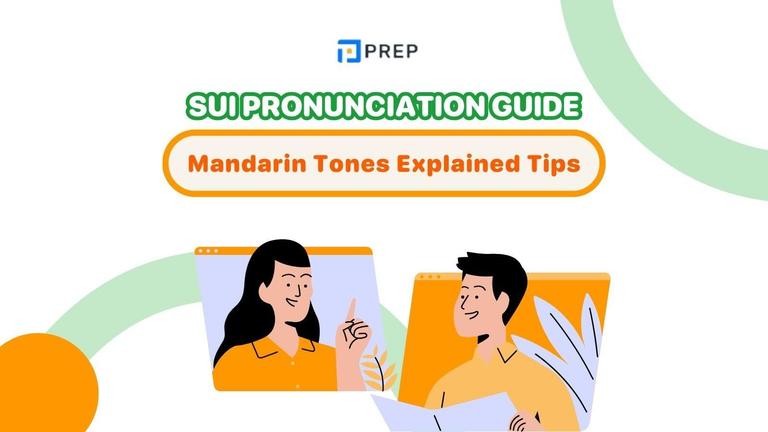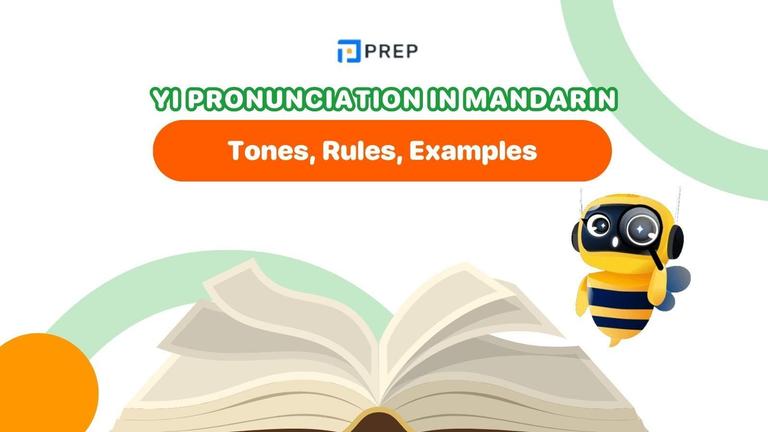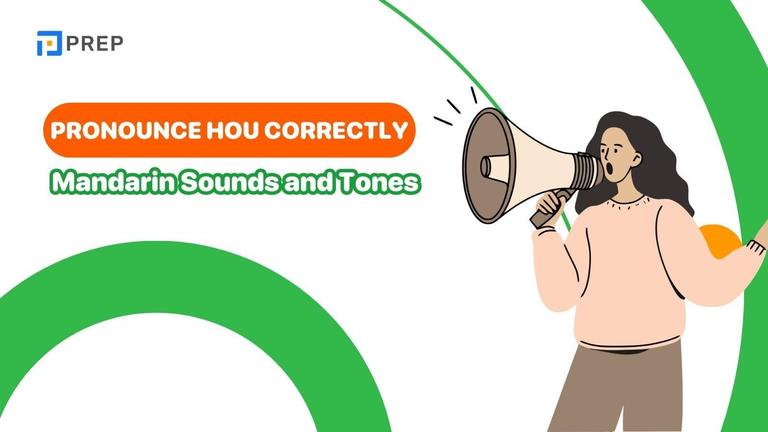IELTS Speaking Part 3 Computer strike
Computer strike is a relatively new topic in IELTS Speaking Part 3. So when it comes to this topic, how many related questions are the examiners likely to ask? In today's article, let's go through the questions, sample answers, and useful vocabulary used in IELTS Speaking Part 3 Computer strike together with PREP!
*This sample was prepared by Mr. Nhat Pham, an IELTS 8.5 Overall achiever (9.0 Listening, 9.0 Reading, 8.0 Writing, 7.5 Speaking) and Marker Leader at PREP.

I. IELTS Speaking Part 3 questions with answers on Computer strike
Below, PREP would like to share a list of common IELTS Speaking Part 3 Computer strike questions:
-
What do people use computers for?
-
Should students be allowed to use computers at school?
-
What do you think of people who are addicted to playing computers?
-
Do you think computers make our life simpler or complex?
-
Why do people often have problems when using new products?
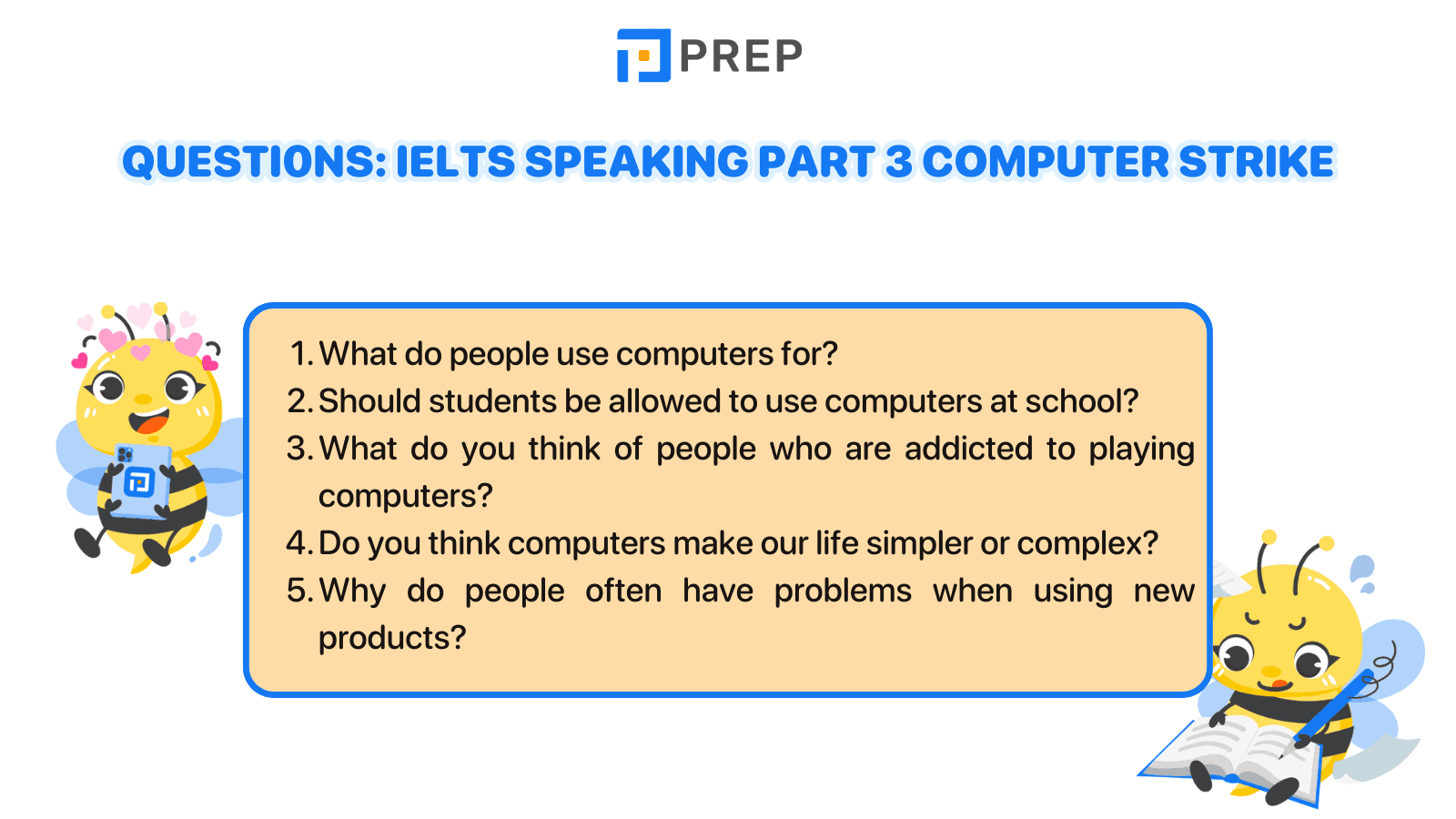
II. IELTS Speaking Part 3 topics with answers related to Computer strike
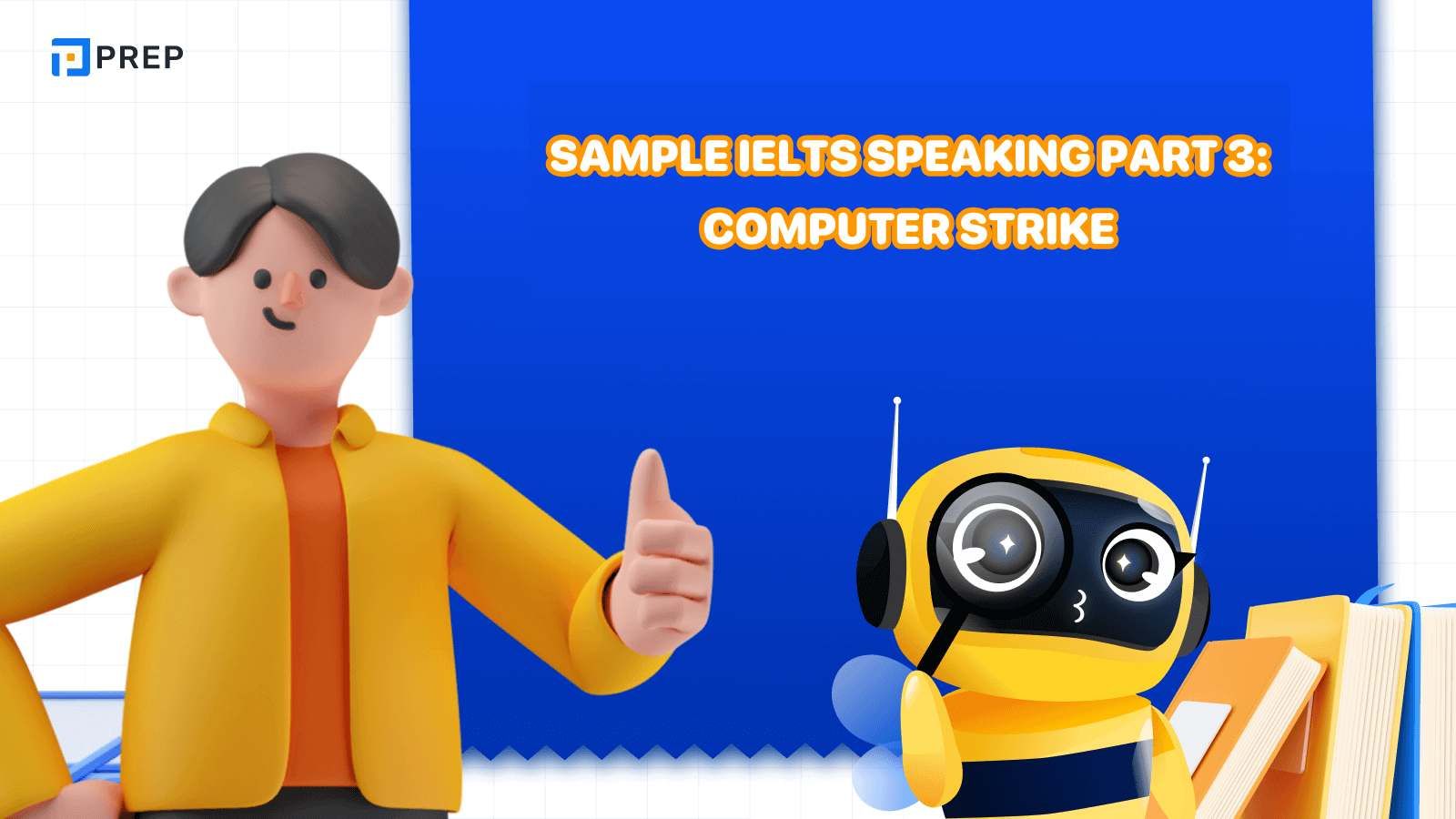
Let's explore the questions that are typically found in IELTS Speaking Part 3 sample answer related to Computer strike together with PREP!
1. What do people use computers for?
Computers serve a wide range of purposes. In professional settings, computers are essential for tasks such as data analysis, design, and communication. They also serve as entertainment hubs for gaming, streaming, and social media. In education, computers facilitate research and learning. Moreover, they enable online shopping, banking, and even healthcare management. Essentially, computers have become integral to both work and leisure, enhancing productivity and convenience.
Vocabulary commonly used in IELTS Speaking Part 3 examples related to Computer strike:
-
Professional (adj): relating to or connected with a profession.
-
Facilitate (v): to make (an action or process) easy or easier.
-
Integral (adj): necessary for the completeness of the whole; essential or fundamental.
-
Enhancing (v): to increase or improve in value, quality, desirability, or attractiveness.
2. Should students be allowed to use computers at school?
Living in this highly technological world, especially after COVID-19, learning with computers has been a common scene in many schools, so allowing students to use computers at school can be beneficial when used responsibly. Computers aid in research, access to educational resources, and developing digital literacy skills crucial in the modern world. However, it's important to strike a balance and ensure students don't misuse them for distractions or cheating. Proper guidance and supervision are key to harnessing the educational potential of computers.
Vocabulary commonly used in IELTS Speaking 3 samples related to Computer strike:
-
Beneficial (adj): producing good or helpful results; advantageous.
-
Responsibly (adv): in a responsible manner.
-
Aid (v): to provide help or assistance to.
-
Digital (adj): using or involving computer technology.
-
Distractions (n): something that diverts attention.
-
Harnessing (v): to bring under control and make use of.
3. What do you think of people who are addicted to playing computers?
I think they often struggle to maintain a balanced life. While gaming can be a legitimate form of entertainment and even a competitive sport, excessive play can lead to neglect of real-life responsibilities, health problems (such as eyesight and backache), and social isolation. Understanding the difference between healthy gaming and addiction is crucial, and support should be available for those facing gaming-related issues.
Vocabulary commonly used in IELTS Speaking Part 3 Computer strike:
-
Struggle (v): to try hard to achieve or attain something in the face of difficulty or opposition.
-
Legitimate (adj): conforming to the law or to rules.
-
Excessive (adj): beyond the usual, necessary, or proper limit or degree.
4. Do you think computers make our life simpler or more complex?
I guess both. Computers have undoubtedly simplified many aspects of our lives by automating tasks, improving communication, and providing quick access to information. However, they have also introduced complexities, such as cybersecurity concerns, digital overload, and dependency. Whether computers make life simpler or more complex depends on how effectively we manage and integrate them into our daily routines.
Vocabulary commonly used in IELTS Speaking Part 3 Computer strike:
-
Simplified (adj): made simpler in form or expression.
-
Complexities (n): the state or quality of being intricate or complicated.
-
Cybersecurity (n): the protection of internet-connected systems, including hardware, software, and data, from unauthorized access or attacks.
-
Integrate (v): to combine (one thing) with another to form a whole.
5. Why do people often have problems when using new products?
There are several factors leading to this. One common issue is the learning curve associated with unfamiliar technology. Additionally, inadequate user manuals or poor design can contribute to confusion and frustration. Compatibility issues with existing devices or software can also pose challenges.
Vocabulary commonly used in IELTS Speaking Part 3 Computer strike:
-
Curve (n): a line or outline that gradually deviates from being straight.
-
Inadequate (adj): not sufficient or suitable for a purpose.
-
Confusion (n): the state of being confused; a situation of mistakes or uncertainty.
-
Frustration (n): the feeling of being upset or annoyed, especially because of inability to change or achieve something.
-
Compatibility (n): the state of being compatible; a situation in which two things are able to exist or occur together without problems or conflict.
PREP has provided you with a full set of sample answers for IELTS Speaking Part 3 Computer strike. Keep following PREP to get more high-quality English knowledge updates!
PREP – The intelligent learning & exam preparation platform that uses AI not only corrects mistakes in detail like a teacher but also recognizes strengths to encourage learners, enhancing the quality of your speaking to a higher band score while maintaining 100% of your original ideas. When you learn IELTS Speaking at PREP, you don't just need to speak correctly, but speak better and more effectively.
Register HERE to receive advice on your IELTS Speaking learning plan.
Download the PREP app now to self-study IELTS at home with a high-quality online training program that helps you improve every day.

Hi I'm Chloe, and I am currently serving as an Product Content Administrator at Prep Education. With over five years of experience in independent online IELTS study and exam preparation, I am confident in my ability to support learners in achieving their highest possible scores.
Comment
Premium content
View allPersonalized roadmap
Most read




